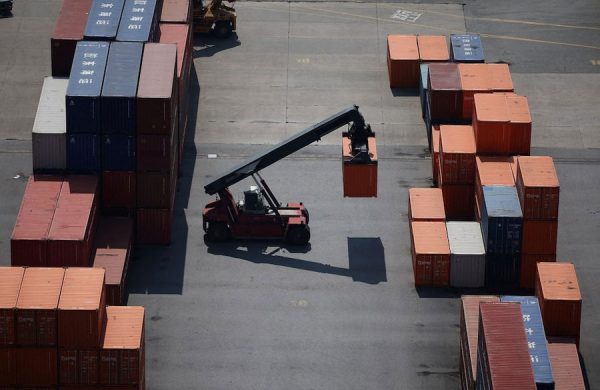Risk of global economic recession surges on US tariff shockwaves: Reuters poll
- Update Time : Monday, April 28, 2025

Reuters:
Risks are high that the global economy will slip into recession this year, according to a majority of economists in a Reuters poll, in which scores said US President Donald Trump’s tariffs have damaged business sentiment.
Just three months ago, the same group of economists covering nearly 50 economies had expected the global economy to grow at a strong, steady clip.
The Reuters Tariff Watch newsletter is your daily guide to the latest global trade and tariff news. Sign up here.
But Trump’s push to reshape world trade by imposing tariffs on all US imports has sent shockwaves through financial markets, wiping out trillions of dollars in stock market value, and shaken investors’ confidence in US assets, including the dollar, as a safe haven.
While Trump has suspended the heaviest tariffs imposed on almost all trading partners for a few months, a 10per cent blanket duty remains, as well as a 145per cent tariff on China, the United States’ largest trading partner.
“It’s hard enough for firms to think about July right now where they don’t know what the reciprocal tariffs are. Try and plan another year down the road. I mean, who knows what it looks like, let alone five years down the road,” said James Rossiter, head of global macro strategy at TD Securities.
Faced with heightened uncertainties and century-high duties on goods, many global businesses have either withdrawn or cut revenue forecasts.
Showing unusual unanimity, none of the more than 300 economists polled April 1-28 said tariffs had a positive impact on business sentiment, with 92per cent saying ‘negative’. Only 8per cent said ‘neutral’, mostly from India and other emerging economies.
Three-quarters of economists cut their 2025 global growth forecast, bringing the median to 2.7per cent from 3.0per cent in a January poll. The International Monetary Fund was a tad higher at 2.8per cent.
Individual economies surveyed showed a similar trend; median forecasts were cut for 28 of the 48 economies polled.
Among the others, for 10 economies the consensus view was unchanged and for 10, including Argentina and Spain, the view was slightly upgraded, based mainly on domestic developments.
China and Russia were forecast to grow 4.5per cent and 1.7per cent respectively, outperforming the US Those median estimates were unchanged from last quarter’s survey.
‘Big Tech firms take the spotlight this week on Wall Street as the likes of Apple, Amazon,
However, growth forecasts for Mexico and Canada were downgraded from January by some of the largest margins, to 0.2per cent and 1.2per cent. Most of those revisions came in the last month.
The split for 2026 was nearly the same, suggesting the downtrend in growth expectations that started with Trump imposing tariffs is deep, and not easy to fix.
Asked about the risk of a global recession this year, 60per cent – 101 of 167 – said it was high or very high. Sixty-six said it was low, including four who said very low.
“It’s a very difficult environment to be optimistic about growth,” said Timothy Graf, head of macro strategy for Europe, Middle East and Africa at State Street.
“We could get rid of tariffs today and it will still have done quite a lot of damage, just strictly from the view of the US as a reliable actor in bilateral and multilateral agreements ranging from trade to common defense.”
The progress that central banks have made over the past couple of years in taming the worst global inflation surge in decades by raising interest rates in quick succession is also expected to stall due to tariffs, which economists agree are inflationary.
“Cutting off your largest trading partner … is going to do all sorts of wild and not so wonderful things to prices, and that’s going to have all sorts of negative impacts on real incomes and ultimately demand,” State Street’s Graf added.
“It’s a situation where the possibility that we enter a stagflationary environment has always been quite low – but I think is now higher.”
Stagflation is usually defined as an extended period of no or low growth, high inflation and rising unemployment.
More than 65per cent – 19 of 29 major central banks polled – were not expected to meet their inflation targets this year. The number dropped slightly to 15 for next year.


















